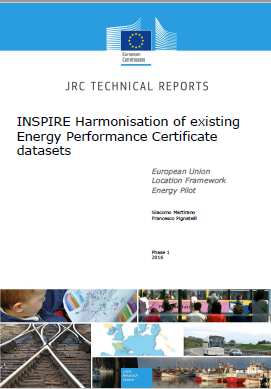The European Union is giving more and more emphasis to its energy policies, whose strategy and actions are included in the Energy Union Package and the 2030 Framework for Climate and Energy.
Buildings in which people live and work are responsible for an important portion of the energy consumption in Europe (approximately 40% of the primary energy consumption) and there are several policies and initiatives that are aiming at improving their energy performance.
In particular, the Energy Performance of Buildings Directive (Directive 2010/31/EU) contains requirements about systems of certification of the energy performance of buildings to be adopted by Member States. For example, energy performance certificates have to include the energy performance of a building and reference values such as minimum energy performance requirements in order to make it possible for owners or tenants of buildings to compare and assess their energy performance.
Certificates have to be issued also for buildings where a total useful floor area over a certain threshold is occupied by a public authority and frequently visited by the public. Moreover, these certificates contain location data related to energy consumption and energy efficiency, which are at the same time semantically rich and spatially detailed (at building level). Therefore, they contribute to improve considerably the data accuracy at local level, which is explicitly required by the energy efficiency policy instruments, aiming to overcome the current limitations of using top-down statistical approaches for energy efficiency assessments at local level.
In the policy context described above, the current lack of harmonisation of energy

This report contains the results achieved by a pilot project, in which a methodology for the harmonisation of energy performance certificates was designed, developed and tested with a regional authority managing a certificates’ register.
Applying the same methodology to certificates’ registers managed by other national/regional authorities will contribute to achieve the harmonisation of the certificates at European level.
The methodology is based on the INSPIRE Directive 2007/2/EC, establishing an infrastructure for spatial information in Europe to support Community environmental policies, and policies or activities which may have an impact on the environment, such as energy policies. In particular, the methodology used to extend the INSPIRE data models in thematic areas such as energy efficiency of buildings, can be re-used in other domains benefitting from data harmonisation according to common data models adopted at European level.

